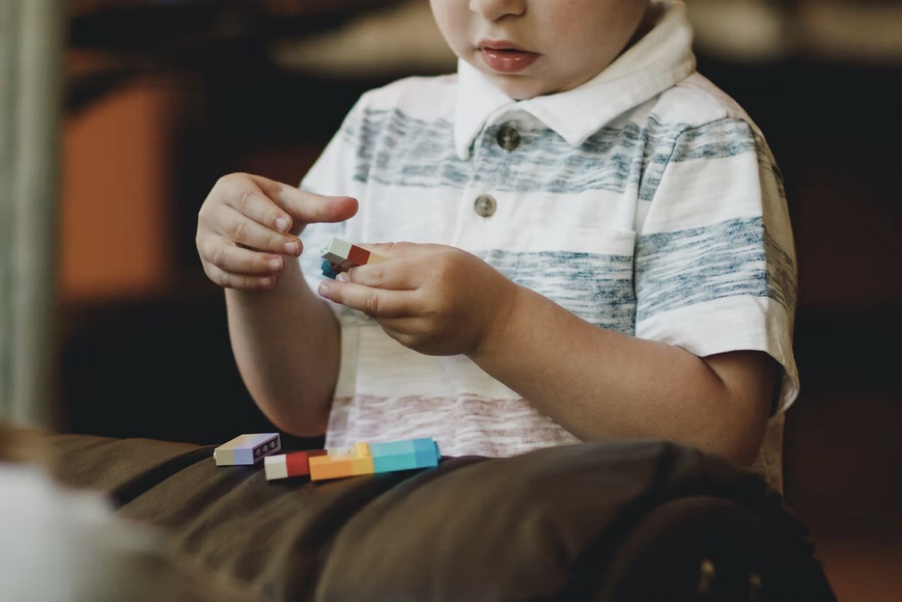Raising a child with autism can be a daunting task. Not only do you have to worry about all the normal parenting concerns, but you also have to contend with the unique needs of your autistic child. One of the most important aspects of raising an autistic child is discipline. Autistic children often respond better to positive reinforcement, while avoiding any type of punishment or humiliation. Here are some tips on how to effectively discipline your autistic child.
1 – Teach them calming techniques
Teaching your child to use calming techniques can help them get through hard times. According to Autism Parenting Magazine, you can learn these techniques in order to deal with sensory issues. For example, if they are having a meltdown you could offer them a favorite stuffed animal or a special snack. Deep breathing, massage, and positive self-talk can also be helpful in calming your child down when they are having a difficult time.
2 – Positive reinforcement
Positive reinforcement is one of the most important and effective strategies that you can utilize. When done correctly, positive reinforcement will motivate your child to behave in the future. For example, if your child is acting out, don’t tell them to stop; instead, give them a reward for acting appropriately. If your child is acting out because they are hungry, give them food. If they are acting out because they are tired or overwhelmed, give them a chance to relax or take a break. If they are acting out because you have told them “no” too many times, don’t tell them “no” another time; instead, give them a hug or tell them that you love them.
3 – Be Consistent
Being consistent is also very important. If you tell your child to stop doing something and don’t follow through with a consequence, they will take advantage of the situation and continue their bad behavior. If you tell your child that they can’t watch TV until they’ve finished their homework, don’t let them watch TV before they do their homework. If you don’t want your child to play with the stove, make sure all the burners are turned off and you keep anything flammable out of reach.
4 – Avoid punishment and humiliation
It is important to avoid punishing your child or humiliating them in any way. For example, if your child is acting out in public, don’t embarrass them by calling them names or forcing them to apologize. Don’t ignore their bad behavior, but try to distract them and get them to stop. If you must punish your child for acting out in public, do it privately and calmly. Other ways to discipline your child include taking away a privilege, such as a favorite toy or video game, or helping them practice a difficult task, such as a household chore or a new recipe. Don’t give up on your child if they have a bad day every now and then. They are more likely to listen if you are patient and loving towards them.
5 – Stick to routines
Sticking to routines can help make your child’s day more structured and less overwhelming. For example, if they always get up and eat breakfast at the same time every day, don’t break your routine. If your child is always allowed to watch an hour of TV after they eat their dinner, don’t allow them to watch TV before they eat. Consistency can help your child feel safe and secure, so try your best to stick to your routine. Although it is best to have a set schedule for your child, you should remain flexible and open with them. Things in the home might become overwhelming for your child, so be willing to accommodate their needs. Make sure your child’s teachers are aware of their autism so that they can help them cope with stressful or overwhelming situations.
6 – Communicate clearly with your child and their teacher
It is important to always communicate clearly with both your child and their teacher. If you are having a hard time disciplining your child, it is possible that they might be having a hard time understanding you. They might also be experiencing bullying in school, so try to be open with their teacher. If your child is acting out in school, be sure to contact the teacher and figure out what happened so you can work together to resolve the situation.
7 – Ignore Behavior That Is Otherwise Harmless
You should also remember to ignore any behaviors that are otherwise harmless. For example, if your child occasionally talks “baby talk” or likes to hum short songs, it’s okay to let it slide. If they’re stimulated by rocking back and forth, don’t try to stop them, just sit quietly and let them rock. If they like to line up their toys in a certain way, don’t break their routine by moving the toys around. Autistic children often have certain ways they like to do things, so try not to break their rules. They might be more inclined to listen if they’re allowed to do things the way they like.
8 – Be patient with them
Remember to be patient. You should also remember that your child might take a little longer to learn things, so try not to get discouraged if they’re struggling. For example, if they’re trying to learn their colors, don’t give them the answer right away. If you say “red” and they hand you a blue crayon, don’t get angry. They might be having a hard time learning their colors, so try to help them figure it out instead of giving them the answer.
As parents of autistic children, it can be difficult to know how best to discipline our kids. Many people believe that punishment is the way forward when dealing with an unruly child who doesn’t respond well to traditional methods of teaching or correction. However, this type of negative reinforcement will only cause your child’s behavior to worsen and may lead them down a path towards aggression or worse behavioral problems in adulthood. As such, you should try positive reinforcement strategies instead- these are more likely to work on an autistic child who responds better when they feel safe and secure.













